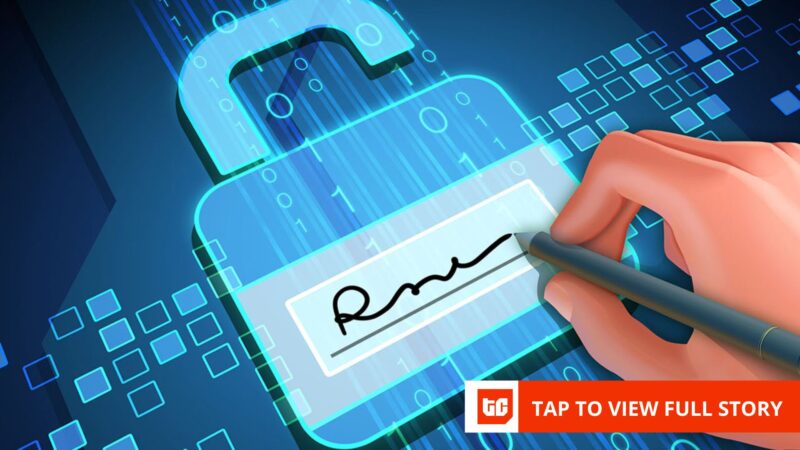Nigeria is taking a major step toward digital governance with the National Digital Economy and E-Governance Bill, 2024. For the first time, the country now has a clear legal framework recognising digital signatures, electronic records, and connected government systems. If implemented effectively, the law could drastically reduce paper-based processes and align Nigeria with global standards for secure and reliable digital transactions in both public and private sectors.
A practical example of the law’s impact is business registration. Entrepreneurs will no longer need to navigate paper forms and long approval times; instead, they can complete the entire process online and sign documents electronically. These digital signatures carry the same legal weight as handwritten ones, speeding up applications, removing delays, and enabling government agencies to share verified information seamlessly—supporting the bill’s goal of creating a secure, integrated digital system.
For decades, Nigeria operated without legislation explicitly recognising electronic documents or signatures in government processes. While ministries, departments, and agencies (MDAs) have long relied on digital communication, such records had no formal legal standing. Institutions such as INEC, immigration services, procurement offices, and courts were forced to maintain parallel paper systems, leading to slow service delivery, duplicate records, weak data integrity, and persistent opportunities for fraud.
Although the Evidence Act, amended in 2023, and COVID-era Rules of Court acknowledge electronic signatures for legal proceedings, they are largely evidentiary, focusing on admissibility rather than robust technical standards. The Act requires that an electronic signature reliably identify the signatory and indicate approval of the content, but it does not differentiate between types of digital signatures or define standards for transactional or operational use.
The new bill fills this gap, providing a detailed framework to make digital signatures functionally equivalent to handwritten ones across government and business operations.
Digital signatures equal handwritten notes
The National Digital Economy and E-Governance Bill establishes a comprehensive and technically rigorous framework for digital signatures. Under the law, a digital signature must be unique to the signatory, capable of verifying their identity, created and controlled solely by the user, and securely linked to the electronic record so that any alteration invalidates it. When these conditions are met, a digital signature is legally equivalent to a handwritten one. The bill also sets standards for security and authentication, recognises foreign electronic signatures, and enables their use in commerce and public administration.
By giving digital signatures the same legal status as handwritten ones, the law ensures reliability, cross-border recognition, and the development of secure, paperless government and business processes. Sections 16 to 20 and 44 of the bill are specifically designed to close this long-standing legal gap. Digital signatures are legally valid if they meet strict requirements for authentication, integrity, and secure identity verification. Government agencies are empowered to issue, store, and retrieve official records entirely in electronic form, removing the need for physical documents and enabling more efficient, paperless public service delivery.
Nigeria is aligning this framework with the United Nations Commission on International Trade Law (UNCITRAL), the global standard for electronic signatures, ensuring the country meets international norms for e-commerce and digital governance. The law also establishes a presumption that a digital signature belongs to the person it represents unless proven otherwise. While this boosts efficiency, it also raises a critical question: what happens if a digital credential is compromised?
The National Information Technology Development Agency (NITDA) is expected to address these gaps by issuing regulations on certificate revocation, liability, audit trails, and identity verification standards. Until these mechanisms are fully defined, users and institutions may face some legal uncertainty when handling disputes or cybersecurity incidents.
As Nigeria advances toward fully digital governance, however, significant implementation questions and structural challenges remain.
Who certifies digital signature platforms?
Section 17 outlines the technical requirements for secure digital signatures, but it does not explicitly name the institution responsible for certifying signature platforms—or verifying that providers meet reliability and encryption standards.
Under current interpretations, NITDA will issue regulations and may authorise both government entities and private trust service providers to conduct certification and carry out security audits.
However, without a dedicated national trust service authority, similar to the European Union’s Electronic Identification, Authentication and Trust Services (eIDAS) system, Nigeria risks fragmented implementation. Competing providers, inconsistent standards, and non-interoperable platforms could weaken digital trust at a national scale.
This ambiguity makes certification one of the most urgent aspects requiring regulatory clarity before nationwide rollout.
Linking digital signatures to national identity
The reliability of a digital signature depends on the strength of the identity system behind it. While the new law assumes robust identity verification, Nigeria’s National Identity Number (NIN) system still faces challenges, including limited coverage (124 million Nigerians have been covered so far), inconsistent data quality, and poor integration across platforms. Under the bill, digital signatures will be linked to the NIN, and identity verification will occur through a trusted API that ensures secure authentication across all government systems. Access to identity databases will be strictly controlled, with strong encryption, timestamping, and audit logs to protect sensitive information.
This represents a major shift in how the government operates. Currently, systems like NIMC, Government Integrated Financial Management Information System (GIFMIS), Integrated Payroll and Personnel Information System (IPPIS), and various MDA databases operate in isolation and cannot communicate with each other. The new law requires a unified identity layer across all government digital systems, creating a secure, interoperable foundation. This standard will transform how public institutions authenticate and authorise users, making digital governance more efficient, reliable, and secure.
Are Nigerian institutions ready?
Section 44 is arguably the bill’s most transformative provision because it grants every government institution the authority—and ultimately the obligation—to issue, store, and accept digital records and digital signatures. In effect, it sets the stage for a nationwide shift toward paperless governance. However, the readiness of ministries, departments, and agencies varies sharply, raising concerns about uneven adoption.
Many public institutions still struggle with unreliable electricity and broadband, limited access to secure servers or enterprise-level digital infrastructure, and the absence of modern document management systems. Cybersecurity capabilities also remain weak in several MDAs, and many lack personnel trained in digital signing, identity systems, or IT audit controls.
To bridge these gaps, the Minister of Communications, Innovation, and Digital Economy is expected to initiate a national readiness assessment and develop a phased transition roadmap, according to one person within the ministry. This structured rollout will be crucial; without it, implementation risks deepening digital inequality between federal ministries and state or local government bodies, undermining the bill’s promise of a unified digital governance framework.
Cross-border validity and international recognition
Section 20 of the bill provides for the recognition of foreign electronic signatures, a provision that is critical for trade, immigration, legal cooperation, and attracting foreign investment. The effectiveness of this measure, however, depends on which international standards Nigeria chooses to adopt. Possible frameworks include the UNCITRAL Model Law, upon which the bill is already based, the EU’s eIDAS regulation, widely regarded as the gold standard for digital trust, or an emerging African Union digital identity and trust framework.
To make cross-border recognition operational, Nigeria will need robust mechanisms to validate foreign digital certificates and ensure seamless interoperability with trading partners, particularly within the AfCFTA. Establishing such systems is essential if Nigerian digital documents—ranging from permits and export certificates to academic records or court filings—are to be legally recognised and trusted abroad, thereby enhancing the country’s participation in the global digital economy.
A foundation for digital statecraft
Supporters of the reform argue that the bill should be assessed based on its long-term institutional impact rather than political sentiment. For the first time, it mandates default government data sharing, the use of mandatory timestamping and audit logs, and full traceability of every interaction with government systems. The law also requires interoperability between identity, personnel, budget, and service platforms, while providing regulatory space for sandboxes and low-cost digital innovation.
These structural changes align with global best practices in digital governance, seen in countries such as Estonia and India. If implemented effectively, the bill could enhance transparency, reduce opportunities for corruption, eliminate duplicate identity records, and modernize public service delivery across Nigeria.








